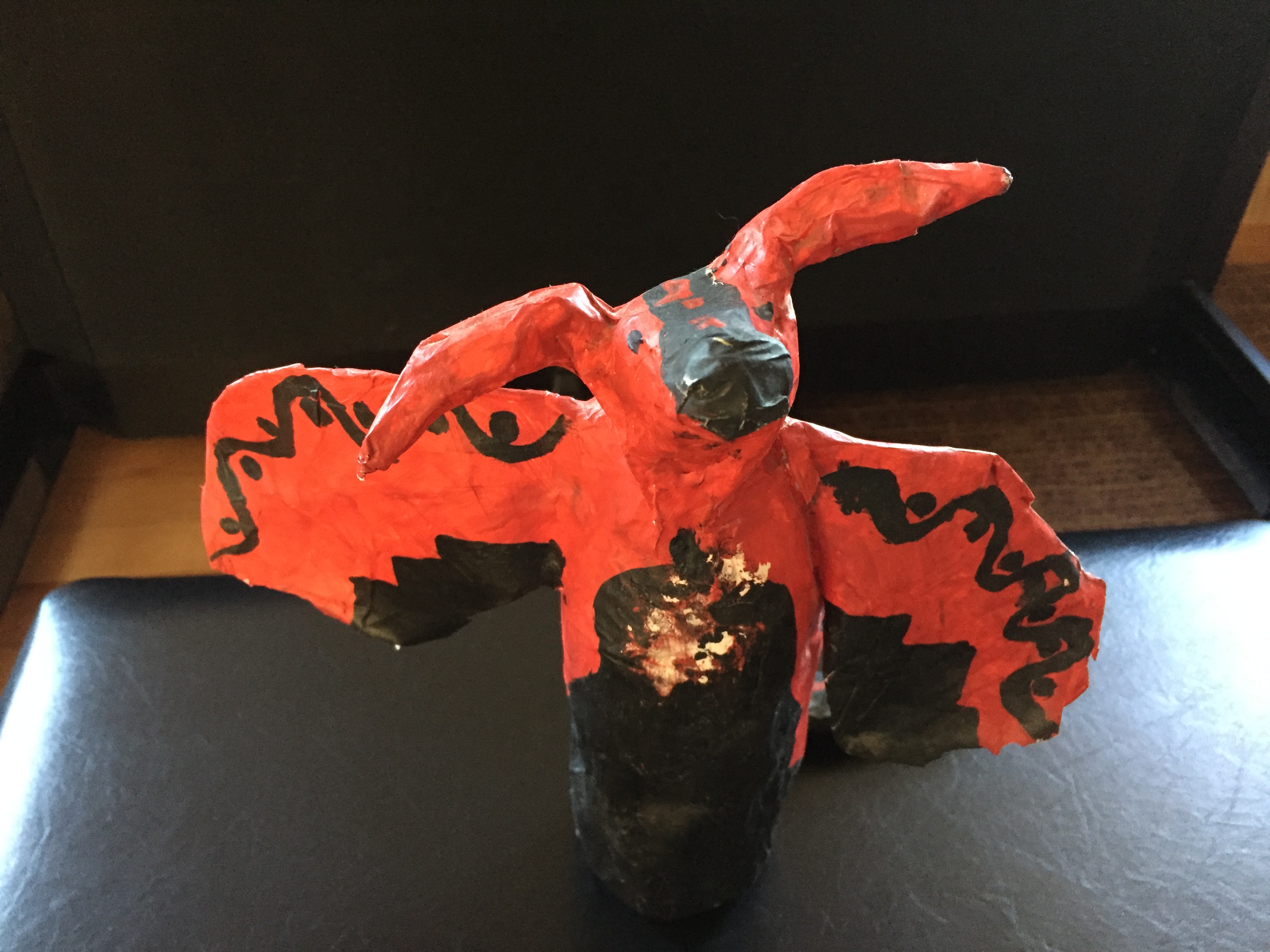Today, we will be baptizing little K. It’s hard to believe that this amazing little human being wasn’t even around 7 months ago – and, boy, has she grown and developed in those last months. I think we all can agree that she is a very friendly infant. She is very generous with her smiles when someone engages her. K. has truly started to communicate with the world around her. Not through words – yet. But through the universal language of babies all over the world: cuteness and eye contact and big and little noises and smiles and also body language. When I held her last week, at some point she made it very clear that she’s had enough by squirming in my arms and reaching out to her mom. She is reacting, she is responding to the environment around her.
In the beginning, K’s communication, just like any infant’s communication, was very limited. She cried when she was hungry, bored or bothered by something. It’s about survival in this harsh world, and so little babies better let their surroundings know about their needs. Babies, in a sense, initiate the communication; mom or dad or the big brother or any other living being responds, by either taking care of the immediate need at hand, or by talking to the child, or by singing, or by rocking and soothing the child. And that’s where the communication stops in those early weeks. Baby is content until the next need arises.
But then there comes more: that first smile. The infant learns how to respond to their mom’s or dad’s voice, to the smiles of the people around them. All of a sudden, a whole new world breaks open, there is a continuous back-and-forth. And the more K’s brain develops, the more refined her way of communication will become; she’s already started making noises, she is trying to imitate the language, or in this case we have to say languages, she hears around her. In another 6 months or so, there will be the first word, then there will be more, she will make connections between all the people and objects around her and specific words, and then, at some point, she will learn and use that dreaded word ‘no’. Big brother J. already knows how to use that to good effect. She will learn what it means to say ‘I love you’; she will know about abstract concepts. And sooner than you think she will be having very sophisticated arguments with you. There will be serious back-and-forth communication.
I find communication and the science behind it fascinating. Communication is what makes any system of living beings work – and not only human beings communicate, but dogs, cats, fish; even bees and ants have refined means of communication. And often communication is non-verbal, but for us as human beings, there is always some sort of language attached, be it a vocal language, sign language, or tactile sign language for the deaf and blind. For humans, in one way or another, it is about the word. Without the word, we’d be lost.
Now today we don’t only celebrate K’s baptism, but also the festival of Pentecost. On Pentecost, God’s Holy Spirit came among the disciples, just as Jesus had promised. According to the story we heard in the Acts of the Apostles, the Spirit was like a wind, like fire, a force of nature. God’s presence was made manifest in a way that could not be ignored. It literally moved the disciples and shook them up and pushed them out into the world, among the people.
But I am even more fascinated by the effects of the Holy Spirit coming among the disciples: the disciples found their voice, the found the language to talk about God’s amazing work among them as it was revealed in the life, the death and resurrection of Jesus Christ, they found words. They were empowered to communicate, to be truly in touch with the people they encountered. We read that the disciples started to talk about Christ, to each in their own language, we hear, and there were quite a few interesting languages around, as we can gather from the Pentecost story. Usually lectors dread the passage about Parthians and people from Phrygia and Pamphylia and all those other tongue-twister names. And I don’t even want to speculate about this surprising ability of the disciples to speak all those different languages, even though most of them are from Galilee.
The core of the Pentecost story is that God’s Holy Spirit initiates communication. God’s Holy Spirit helps make human interaction work, even though those human beings are from different parts of the world and speak different languages. God’s Holy Spirit thus fosters understanding between people and transcends all differences. God’s word, spoken in the beginning of creation, incarnated in Jesus Christ, continues to echo through the world by the power of the Holy Spirit. Without this word, we’d be lost.
The Holy Spirit thus probes us and encourages us and nags us: people, talk to each other! Listen to each other! Learn about one another, share in each other’s stories, and gain understanding in the process – and maybe some wisdom as well. As we all know too well, when people stop communicating, that’s the worst. And I mean real communication, not what often passes as communication in this technological day and age but is nothing more but a narcissistic and constant self-display.
Today there often seems to be a misunderstanding about what spirituality means. Many interpret spirituality as something that is about a personal relationship with the divine, something private, something we do in the silence. And in general, there is nothing wrong with that, as long as we communicate with God somehow. But this is not where the buck stops: faith is a very social matter, it is about the Word, it is about sharing, it is about communication. The Pentecost story from Acts makes that clear, but then also the second lessons from Paul’s first letter to the Corinthians: there he talks about the gifts of the Spirit, and guess what? The utterance of wisdom, the utterance of knowledge, healing, miracles, prophecy, even the mysterious speaking in tongues, it’s all about connecting with someone else. It’s all about the Word becoming flesh in the community. Spirituality thus always has a social and public aspect. God’s Spirit is about God’s people living and working together for the sake of the world. Without the word, we’d be lost.
And so the circle closes. In a few moments, we will be baptizing K. in the name of the Father, and the Son, and the Holy Spirit. We will pray that God’s Holy Spirit will come into the water and also into this precious and beautiful little human being. Most likely we will not experience a rush of wind as this happens, nor will we see tongues of fire on her head. What we will witness is much more subtle: God saying ‘yes’ to K. God starting to have this lifelong conversation with Katharina. God giving Katharina the gift of the word. And we witness how K. becomes a part of God’s great and amazing and diverse family, a part of the community. K’s brain and her ability to communicate are still developing. And that’s where we come in, you as parents and you as sponsors and all of us as the community of Christ: we all have been gifted with the Holy Spirit and the gift of the word and the gift of communication. It is our task to keep K. engaged as she grows and learns and explores the world and faith.
But then it is our task to engage each other as we continue to grow and learn and explore the world and faith.
This is what the Holy Spirit does among us. God’s Spirit calls us together. God’s Spirit encourages and pushes us to talk and listen to each other. God’s Spirit creates true community. God’s Spirit makes sure we are never alone and can support each other. God’s Spirit is at the heart of all we do and all we are.




